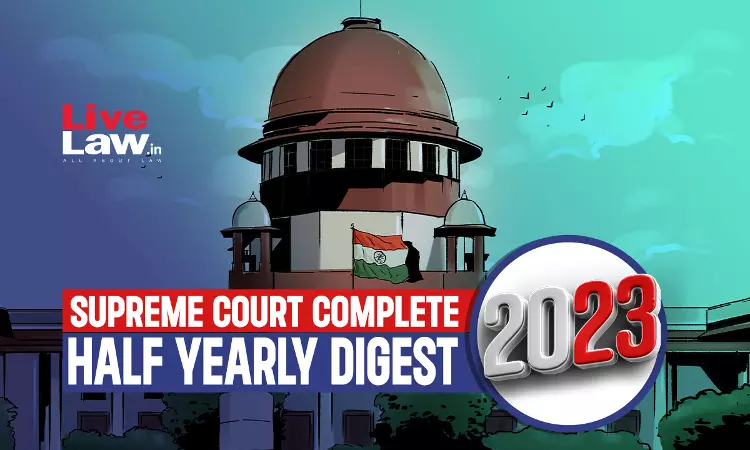Next Story
26 Dec 2023 4:23 PM IST
AAccess to JusticeFundamental right of Access to Justice - Abolition of OAT does not violate right of access to justice as cases will be heard by High Court - The fundamental right of access to justice is no doubt a crucial and indispensable right under the Constitution of India. However, it cannot be interpreted to mean that every village, town, or city must house every forum of...

